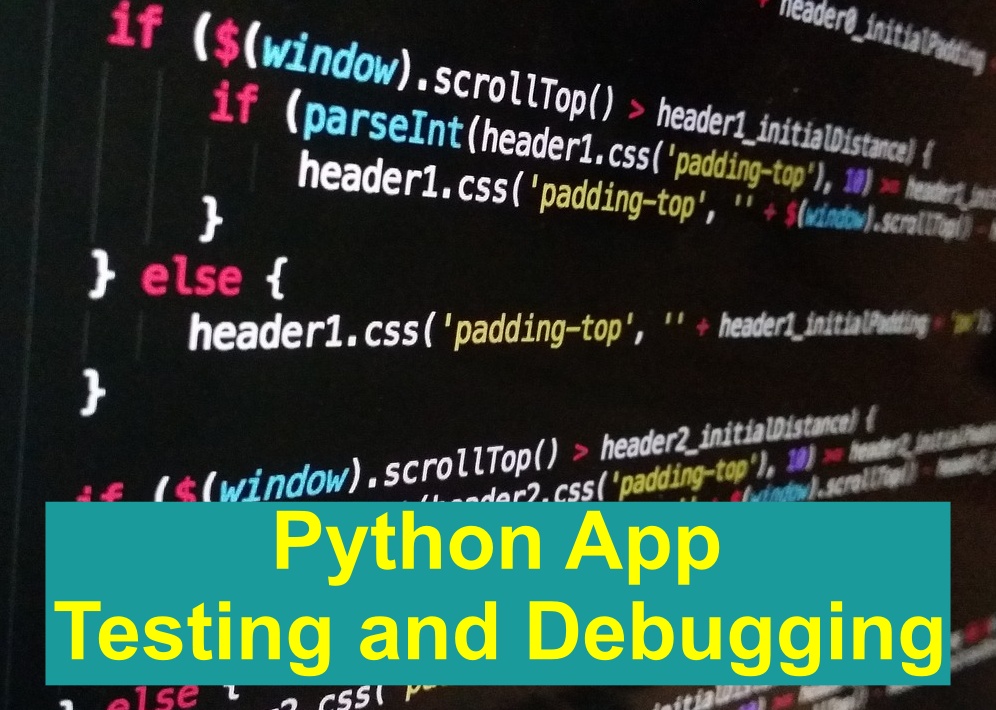Python is one of the most popular programming languages these days and there are reasons to support this fact. Python is an easy, simple, and versatile coding language, yet it can be used to create complex mobile and web applications.
Table of Contents
According to Berkeley BootCamp, Python is the second most popular programming language after Javascript. Because it is easy to learn and -use, Python is the first choice for beginner programmers that just starting with their first projects.
However, If you are not tech-savvy and looking for someone to create an app for you in Python programming language for your business, consider https://lemon.io/hire-python-developers/ to look for a good Python app developer.
In this article today, we will learn the importance of Testing and Debugging in software development and how it helps in achieving excellence and reliability.
Importance of App Testing and Debugging
So if you are developing an app or web-based tool using a programming language, make sure you go through the testing process completely to ensure the app developed serves the said purpose and offers a good user experience and smooth navigation throughout the app.

Here are the types of testing you should perform before its final launch.
- Unit Testing
Unit testing is the basic app/software testing method that ensures each and every Unit and component of the app code that you have written using Python language works individually.
The testing is handled by the developers to test each module separately and to ensure there are not any coding issues before integrating them all.
Also See: How to Fix Roblox Error Code 403
It is a good practice to test small pieces of code in isolation as it eliminates the headache of troubleshooting a large piece of code combined. Finding bugs and issues in a large coding file is not an easy task.
However, it is always advisable to write simple and readable code. Use blocks to separate each piece of code individually and not add any reference until the unit testing is done.
- Integration Testing
Integration testing as the name suggests is about checking if the app developer has integrated all the individual components, modules, and units properly or not.
Integration testing ensures a smooth connection between all components and it doesn’t throw any error.
The integration testing uncovers the bugs and issues that arise due wrong implementation of references to a component or module, API calls, etc.
- Functional Testing
Once the unit testing and integration testing are done, the developers test the Python app as a whole, to check how it will behave in front of the users.
It refers to the user experience, navigation throughout the app, features, etc.
The app developers may use simulators like Selenium or Behave to check how it will look to a user. If it doesn’t look good, the changes are suggested
- Performance Testing
Performance testing is very important for an app developed as any app built should work properly on mobile devices. It mainly refers to testing on stability, scalability, and responsiveness.
If the app performance is not good, it will trouble the mobile phone as well leaving the user frustrated.
Often the user removes the app from their mobile phone which takes too much of the hardware resources of the phone.
Debugging Techniques
Debugging is yet another important phase of the app/software development process. Without going through the debugging process, your app will be full of errors and won’t perform as it intends to.
Debugging refers to identifying the various errors and bugs that stop the app from working fine and fixing them.
If the Python programmer that you have hired is experienced and has written a lot of Python code, there is very little chance that they find bugs during debugging.
Beginner Python developers are likely to make more syntax errors.
Although debugging an app is a headache, specially when you are unable to find the reason behind the error, Python has made it simpler for the developers as they have their built-in debugger called PDB, which offers interesting features like variable inspection, breakpoints and step-by-step execution of the code so that you could identify the culprit.
However, good Python developers use IDEs like PyCharm, and my favorite Visual Studio Code, which has additional features to make debugging easy and faster eventually giving developers a sense of confidence.
Code Review and Static Analysis
During code review and static analysis, it is important to be sure that the developers have followed the standards of coding practices.
Code review from the peer group helps the developer identify logical errors, best practice violations, and vulnerabilities.
The availability of some great static analysis tools like Pylint and Flake8 helps with identifying coding quality issues automatically, promoting consistency in coding practices.
Final Words
Python is simple yet a powerful programming language and it is preferred by most programmers. According to research, Python is the second largest preferred programming language for mobile and web applications.
If you are developing a Python app now, make sure you go through Unit testing and Integration testing, followed by Functional and Performance testing.
These are important steps to make a successful Python app for your business. During unit testing, you make sure individual codes are working fine, and in integration testing, it is ensured the connection between each individual component, and units is established correctly.
During functional testing, the developers test the app for the overall functionality of the app with the help of simulators, and performance testing is done to ensure the app is stable and responsive.

